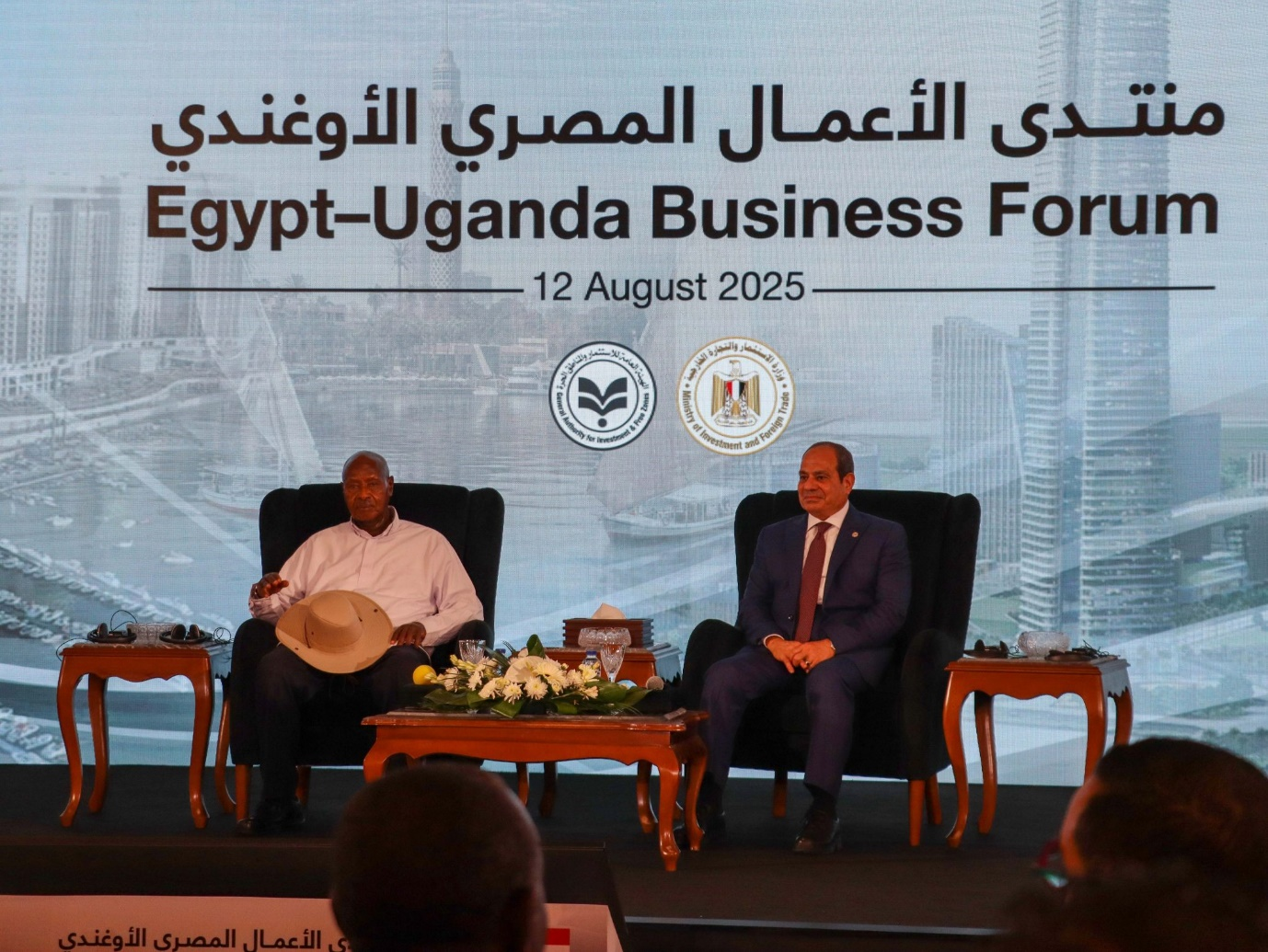By Fidel Boy Leon
For President Yoweri Kaguta Museveni, the bond between Uganda and Egypt, forged by the Nile, is a shared current of destiny. He believes that by channelling Egyptian capital and entrepreneurship into Uganda’s growing economy, the two nations can create a rising tide of growth that uplifts them both.
This strategic flow of investment, he contends, is the surest way to ensure that as one nation’s prosperity swells, so too does the others.
Speaking at the Egypt–Uganda Business Forum in Cairo alongside host President Abdel Fattah El-Sisi, Museveni said his mission was clear: attract wealth and investment that can turn historical ties into modern economic gains.
“I could not have come to Egypt without seeking wealth. Egypt and Uganda have been linked by the Nile since time immemorial, but our trade is still too small — only $133 million. That does not match our relationship. “What we lack, and what Egypt can help us get, is capital and entrepreneurship,” Museveni told delegates.
Uganda and Egypt’s relationship is anchored in the Nile, the world’s longest river, which has shaped politics, economies, and livelihoods in the region for centuries. Under colonial-era agreements such as the Nile Waters Agreements of 1929 and 1959, Egypt enjoyed significant control over Nile usage, a position later challenged by upstream nations, including Uganda.
In recent decades, cooperation has shifted to multilateral platforms like the Nile Basin Initiative, which promotes shared management of the river’s resources. For Egypt, engagement with upstream countries like Uganda is critical to securing water flows, while for Uganda, Egypt represents a source of capital, technology, and market access.
The high-level forum, themed “Strengthening Trade and Investment Cooperation between Uganda and Egypt”, drew about 200 participants for Business-to-Business and Business-to-Government engagements, joint ventures, and strategic partnership discussions.
Museveni highlighted Uganda’s progress into the low-middle-income bracket, crediting a “careful packaging of philosophy, ideology, and the economy” for sustained growth. But he said more was needed to accelerate transformation.
“Just as investors from India and China have helped us, Egypt too can join in and benefit,” he said.
He pointed to Uganda’s advantages: fertile soils, abundant fresh water, minerals, fisheries, and a growing labour force of 46 million people, projected to more than double in 25 years.
Museveni warned that production without a market leads to failure, recalling Japan’s past reluctance to partner with Uganda on vehicle assembly, a gap now being filled with Uganda’s own manufacturing capacity. He argued that Africa must unite to grow its market access.
“Shall we build a United States of Africa, or a fragmented Africa like Latin America?” he challenged.
He thanked President El-Sisi for agreeing to establish a foot-and-mouth disease vaccine factory in Uganda, a move expected to bolster livestock health and trade potential.
President El-Sisi described Uganda as a “main partner in the Nile Basin,” pledging to strengthen cooperation in agriculture, transformational industries, and infrastructure.
Egypt’s Minister of Investment and Foreign Trade, Hassan El Khatib, said both countries shared a vision for prosperity and were committed to creating investment-friendly conditions.
Uganda’s Minister of Finance, Hon. Matia Kasaija noted that bilateral trade hit $138 million in 2024, with Egypt exporting $112 million worth of goods to Uganda. But he said the potential was far greater, urging Egyptian firms to invest in value addition for cassava, dairy, and other high-potential sectors.
“The MOUs signed here are not just paperwork, they are the start of real opportunities,” Kasaija said.
From shared waters to shared wealth, Museveni’s message was simple: the Nile should not only connect Uganda and Egypt in geography, but also in prosperity.


